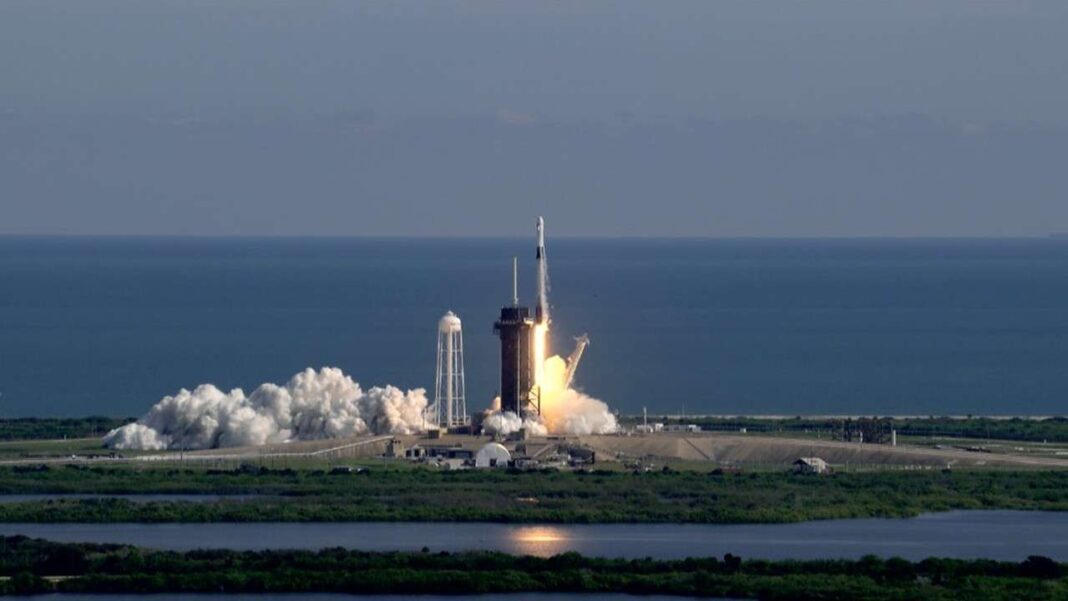A Falcon 9 rocket lifts a Dragon 2 capsule toward the International Space Station, then comes back to stick the landing.
A new version of the SpaceX Dragon spacecraft is making its first cargo flight to orbit following liftoff atop a Falcon 9 rocket Sunday morning.
A Dragon 2 filled with supplies is on its way to the International Space Station as part of the 21st launch under a commercial resupply services contract between Elon Musk’s rocket company and NASA.
Falcon 9 booster has landed on the Of Course I Still Love You droneship pic.twitter.com/cNL6t0LQ0g
— SpaceX (@SpaceX) December 6, 2020
The new,upgraded Dragon can carry 50% more science payloads compared with the previous version, according to SpaceX. This version has previously sent astronauts to the ISS during the Demo-2 and Crew-1 missions for NASA, but this is the first Dragon 2 cargo mission.
In addition to supplies for the astronauts and station, CRS-21 is carrying several experiments to the ISS, including the first COVID-19 drug research experiment in space. A number of biological investigations will take advantage of technologies like tissue-on-a-chip and brain organoids, which can be used to simulate human tissue and record how it responds to microgravity.
Another experiment on board is Bioasteroid, which aims to help determine whether organisms such as fungus could be used to help extract valuable substances like rare Earth metals from asteroids to mine them or even sustain bases on other worlds.
“We’re going to be looking at whether those microbes can get elements we’d really like to use in industry from the surface and interior of asteroids,” Charles Cockell, principal investigator for Bioasteroid, says in the NASA.
Also flying on the Dragon is a new airlock module from Nanoracks that’s similar to a Japanese airlock already on the ISS, but significantly larger. The new infrastructure could allow for cubesats or other payloads to be deployed into space from the space station.
The Falcon 9 booster that lifted the Dragon 2 from a Florida launch pad at 8:17 a.m. PT Sunday was making its fourth flight and followed that with its fourth successful landing on the drone ship Of Course I Still Love You in the Atlantic.
The Dragon should dock with the ISS on Monday. Its arrival will be broadcast on NASA TV starting at 8:30 a.m. PT with docking scheduled for 10:30 a.m. PT













![Hotstar Premium Cookies 2019 [*100% Working & Daily Updated*] Hotstar Premium Cookies 2019 [*100% Working & Daily Updated*]](https://tahav.com/wp-content/uploads/2019/11/Hotstar-Premium-Cookies-Free-100x70.jpg)



